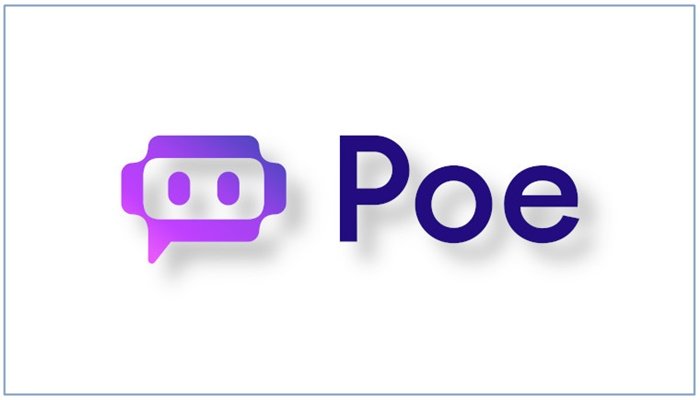
Remote working is the current trend in the professional world. Just like most people are hooked on the idea of work-travel integration, more and more people are signing up for digital nomadism. One would then need the right tools and strategies to allow one to be productive and connected, no matter where one happens to be.
Using Remote Technologies
The digital nomad lifestyle requires one to have a good understanding of remote technologies. A stable internet connection is necessary, as it is the backbone of all remote work activities.
According to data from 2024, 18.1 million American workers claimed to be digital nomads, representing a 4.7% increase from the previous year and a 147% rise since 2019. This growth points to the increasing relevance of trustworthy remote technologies. Another international survey found that in 2022, most digital nomads were self-employed; more than half of them owned their businesses, and about 35% of them were freelancers.
Traditional SIM cards are usually restricted by region and come with heavy roaming charges. This is where Holafly’s eSIM comes in. An eSIM is a digital SIM, that allows users to activate a cellular plan without a physical SIM card. With Holafly’s eSIM, unlimited data in selected destinations will allow tourists to stay connected without the bother of looking for local data plans. The number of digital nomads has grown rapidly over the past few years.
Beyond connectivity, digital nomads depend on numerous tools to stay productive. Cloud-based applications, project management software, and communication platforms enable great collaboration with clients and teams even when separated by many time zones. Quality hardware investments, such as lightweight laptops and noise-canceling headphones, further make the remote work experience enjoyable.
Basic Productivity Tools
In addition, a digital nomad has to leverage a full suite of tools and resources optimized for working remotely to be productive while traveling. Such solutions streamline tasks and projects, offer time tracking, and promote seamless collaboration that transcends distances.
Project Management Software: Trello and Asana are tools used for task organization, creating deadlines, and tracking progress. Actually, several projects can be managed at once through the visual interfaces provided by these tools, which is probably the situation with digital nomads working for numerous clients.
Time Tracking Applications: Toggl and Harvest are examples of applications that help freelancers track time spent on projects, therefore helping them bill their clients the right amount. Using time logs helps professionals to identify the bottlenecks in their productivity and optimize their workflow.
Cloud Storage Solutions: Google Drive and Dropbox offer better security storage and access to important documents from any device. This allows important files to be readily available, even while commuting between locations.
Communication Platforms: Clear and consistent communication with clients and other team members is particularly important. Applications like Slack and Zoom better connect people in real time through messaging and video conferencing across all distances.
Digital nomads can, through the integration of these tools into their lives, maintain levels of productivity high enough to complete quality work productively anywhere their travels may take them.
Cybersecurity Aspects
Cybersecurity measures are vital for digital nomads who operate remotely using different networks. Protecting sensitive information and maintaining privacy should be on top of priorities for people embracing this lifestyle.
Virtual Private Networks (VPNs): Using a trusted VPN encrypts internet connections, protecting data from potential eavesdroppers, especially on public Wi-Fi networks commonly used by travelers.
Two-Factor Authentication (2FA): Enabling 2FA adds an extra layer of security to online accounts, reducing the risk of unauthorized access even if login credentials are compromised.
Routine Software Updates: ensure that operating systems and applications have the latest security patches installed, which prevent the exploitation of any vulnerabilities the cybercriminal might find in them.
Data Backup Solutions: prevent loss of critical information resulting from theft, damage, or malware attacks by backing up data to secure cloud services or external drives routinely.
These cybersecurity measures can ensure the protection of digital nomads’ work and personal information so they can confidently work across a myriad of digital landscapes.
Nomadic Financial Management
Effective management of finances is key for digital nomads due to the intricacies of income in multiple currencies and adherence to varied tax regulations.
Multi-Currency Bank Accounts: Banks like Wise provide accounts to hold and manage funds in other currencies, avoiding conversion fees and making international transactions easier.
Expense Tracking Applications: Tools such as Expensify and Mint can be used for tracking spending, categorizing, and gaining insight into financial habits, which assists in budget management.
Tax Compliance Services: Digital nomads often find it difficult to navigate tax obligations. Some services specialize in helping remote workers with international tax compliance, ensuring that they comply with the law.
Health and Travel Insurance: Comprehensive insurance coverage protects against unforeseen medical expenses and travel disruptions, providing peace of mind during international travels.
By proactively managing their financial affairs, digital nomads can maintain financial stability and focus on their work and adventures without undue stress.
Balancing Work Life
Probably one of the greatest challenges that digital nomads have is a balance between work and personal life. Remote work sometimes tends to cause overworking or even failing to distinguish between work and personal life.
Work Schedule: Routine and structure create stability. Most digital nomads employ techniques such as time-blocking, where they identify certain hours of the day as dedicated to work and others to personal time, to be effective at work and avoid neglecting personal time.
Appropriate Environment: select places that are work-friendly, like quiet cafes, libraries, or co-working spaces. This reduces distractions and increases efficiency. A separate workspace dedicated workspace rather than a bed or common area also boosts focus.
Sustaining Health and Well-Being: People lead energetic lives by exercising regularly, eating well, and getting enough rest while traveling. Many digital nomads always involve themselves in physical activities, such as doing yoga, hiking, or running, to ensure general well-being.
De-plugging: Other than work, activities that should be included are discoveries of other places, their various activities, getting friends, or doing hobbies.
Digital nomads, through conscious management of work-life balance, avoid burnout and maximize traveling experiences.
Building a Supportive Community
The digital nomad lifestyle offers unparalleled freedom, but sometimes it can lead to feelings of isolation. Building and maintaining a supportive community is essential for personal well-being and professional growth.
Co-Working Spaces: A co-working space will get the remote worker out of isolation as it exposes one to people sharing the same ideology. Several cities have been adapting co-working spaces to fit their needs of a remote worker.
Online Communities: Online forums are available on platforms like Nomad List and Reddit.
Networking Events: Attend conferences, workshops, and meetups created for remote workers to establish great connections, possible collaborations, and long-term professional relationships. Most digital nomads discover new opportunities just by mingling with their peers in such settings.
Local Digital Nomad Hubs: Some cities are becoming the hotspots for remote workers because they are affordable, the internet is reliable, and there are vibrant communities. Places like Bali, Chiang Mai, and Medellín have vibrant digital nomad cultures where one can easily settle and connect.
In this regard, digital nomads can form a strong support network that is strong both in their professional and personal lives through virtual and physical spaces.
Preparing for Unexpected Setbacks
It may have its benefits, but the lifestyle of digital nomads is not without its challenges. Planning for unexpected setbacks ensures a smoother experience for remote working.
Visa and residency: It’s very important to know the policies regarding local visa policies and longer-term residency in that country. Some countries allow remote workers through a digital nomad visa and permit them to stay for quite some time under those conditions of staying.
Backup emergency plans: For internet breakdowns, loss of power supply, or an unexpected shutdown of the internet, ensure work commitments aren’t interrupted by keeping a backup portable Wi-Fi device and also scouting out possible alternative workspaces.
Managing Client Expectations: Clear communication guidelines with clients or employers help avoid misunderstandings due to time zone differences or connectivity issues. Regular updates and realistic deadlines contribute to a professional work ethic.
Adaptability: Flexibility is the key for digital nomads. Being prepared to switch locations, adjust schedules, or pivot plans when necessary makes it easier to navigate the uncertainties of remote work.
By being aware of probable threats ahead, digital nomads can approach threats proactively and maintain a long-term, productive remote work lifestyle.
Conclusion
The lifestyle of digital nomads presents an exciting way to blend work and travel, but it calls for careful planning and the correct tools to make it sustainable. From leveraging cutting-edge remote technologies like an eSIM to maintain cybersecurity and financial stability, digital nomads must equip themselves with the essentials to ensure productivity and well-being.
By emphasizing the importance of good work habits, community support, and practicing for challenges, remote workers are ready for an effective career while traveling. As the remote work world evolves, the implementation of these tactics will equip digital nomads to work effectively.
FAQs
-
What are the best countries for digital nomads to live and work in?
Digital nomads would be attracted to countries where living costs are relatively low, internet connections are stable, and visa policies are lenient. Some of the top destinations are Portugal, Thailand, and Mexico.
-
How can digital nomads maintain internet access during frequent travel?
Keeping a mobile hotspot, purchasing an eSIM for worldwide coverage, and scouting co-working offices that can boast having the internet is helpful.
-
Which tools provide digital nomads with ways to track income in various countries?
Multi-currency accounts, budgeting apps, and financial services that specialize in remote workers can help smooth out international transactions and expenses.






